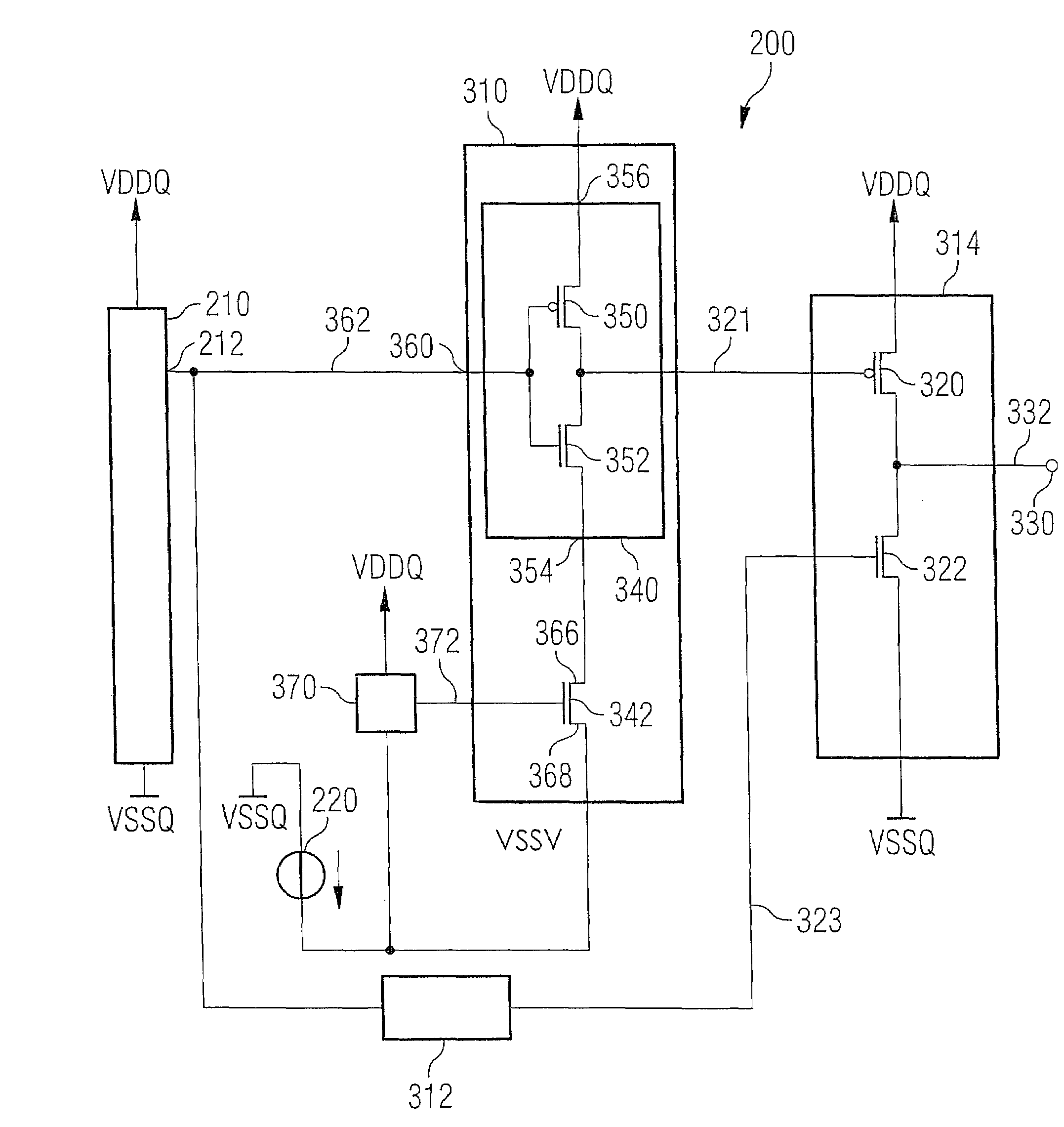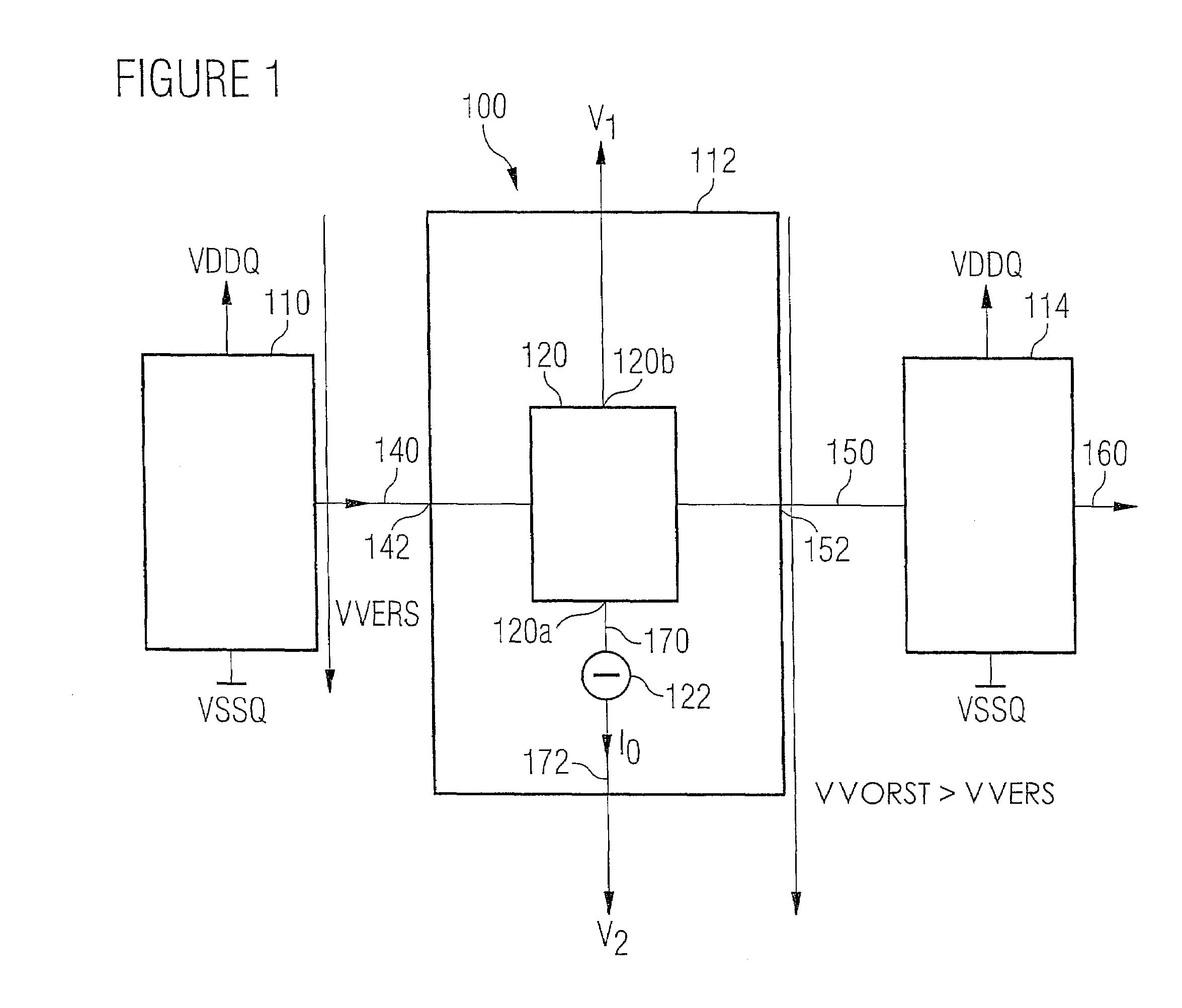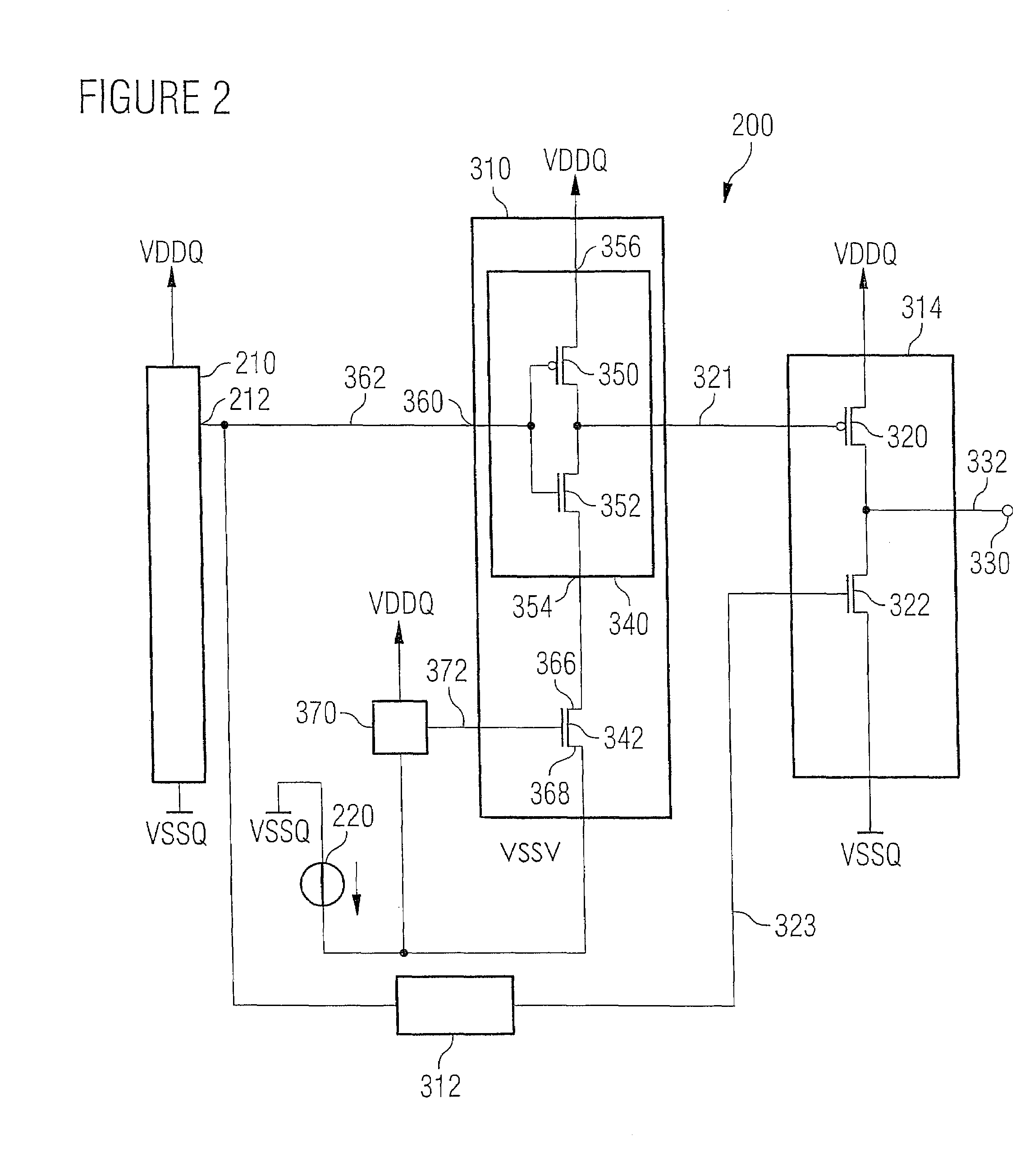Prestage for an off-chip driver (OCD)
a technology of off-chip drivers and prestages, which is applied in the direction of logic circuits, oscillator generators, pulse techniques, etc., can solve the problems of insensitivity of data, deceleration of switch edges through on-chip voltage drops on the on-chip supply voltage lines, and data eye corruption by several undesirable mechanisms, etc., to achieve low circuit complexity of integrated circuits, low cost, and low cost
- Summary
- Abstract
- Description
- Claims
- Application Information
AI Technical Summary
Benefits of technology
Problems solved by technology
Method used
Image
Examples
first embodiment
[0038]FIG. 1 shows a block diagram of an inventive circuitry according to the present invention. The circuitry is designated by 100 in its entirety. The circuitry comprises an integrated circuit 110, a prestage 112 as well as an output driver 114. The integrated circuit 110 is connected to a reference potential VSSQ as well as a positive supply potential VDDQ. The potential difference between the supply potential VDDQ and the reference potential VSSQ forms the supply voltage VVERS. The prestage 112 comprises a circuitry 120 for generating an output signal with a first supply voltage terminal 120a and a second supply voltage terminal 120b as well as current source 122 with a current source output 170 and a base terminal 172. The circuitry 120 as well as the current source 122 are connected in series between a first potential V1 and a second potential V2. The potential difference between the first potential V1 and the second potential V2 forms the prestage supply voltage VVORST. Furth...
second embodiment
[0041]FIG. 2 shows a portion of a circuit diagram of an inventive circuitry according to the present invention. The circuitry is designated by 200 in its entirety. With regard to structure and mode of operation, the circuitry 200 corresponds mostly to the circuitry 300 according to the prior art described with regard to FIG. 3, so that unaltered parts are not described here. Rather, reference is made to the description of the circuitry 300. Otherwise, the same reference numbers in FIGS. 2 and 3 designate the same means.
[0042]It is the object of the illustrated circuitry to output a signal of an integrated circuit 210 at an external terminal 330. Apart from the means already described above, the circuitry 200 also has an integrated circuit 210, from whose output 212 the prestage input signal 362 is provided. Further, the source terminal of the current source transistor, which is also referred to as base terminal 368, is connected to a base potential VSSV, in contrary to conventional ...
PUM
 Login to View More
Login to View More Abstract
Description
Claims
Application Information
 Login to View More
Login to View More - R&D
- Intellectual Property
- Life Sciences
- Materials
- Tech Scout
- Unparalleled Data Quality
- Higher Quality Content
- 60% Fewer Hallucinations
Browse by: Latest US Patents, China's latest patents, Technical Efficacy Thesaurus, Application Domain, Technology Topic, Popular Technical Reports.
© 2025 PatSnap. All rights reserved.Legal|Privacy policy|Modern Slavery Act Transparency Statement|Sitemap|About US| Contact US: help@patsnap.com



